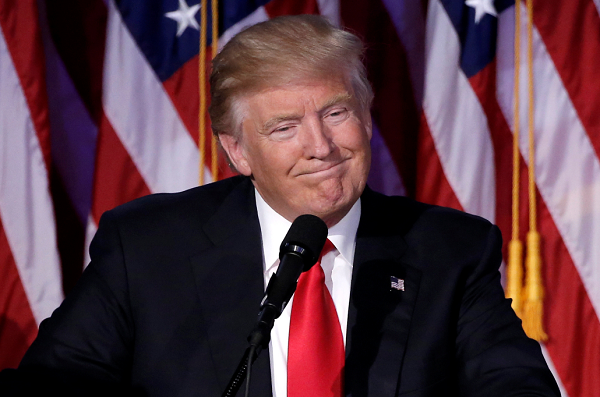Police Shooting Statistics: Will There Be Any Change With Donald Trump As President?

Now that Donald Trump is the president-elect, the many campaign policies the Republican candidate proposed are starting to sink in, and many Americans are using social media to express their livelihood concerns, especially in regards to how Trump will handle race relations and address the wave of police brutality that has been sweeping the nation in recent times.
Trump has addressed the tense relationships among races across the U.S. during his campaign, stating in July that “race relations now are as bad as they’ve ever been” and that there was a “tremendous divide” among different groups within the country.
In 2016 alone, over 800 deaths by police shootings have been documented, according to a Washington Post report. African American accounted for 374 of those deaths, or 45 percent. Trump first expressed empathy for black men falling victim to police brutality after the deaths of Alton Sterling in Lousiana and Philando Castile in Minnesota, both of whom were unarmed black men who were shot and killed by police officers over the summer. Following the police shooting in September of Terence Crutcher, an unarmed black man in Oklahoma, Trump said he was “very troubled” by the incident and that “we have to be very careful” to prevent these things from happening.”
During his first presidential debate against Democrat candidate Hillary Clinton, Trump said African Americans and Hispanics in urban areas are “living in hell because it’s so dangerous.” He also recognized that there have been “thousands of shootings” within inner-city communities, referencing crime in Chicago, and added that “we have to stop the violence.”
How exactly the new president plans to curb crime and the influx of police shootings has been a concern for many minority groups during Trump’s campaign, but if his statements during the debate are any indication, then citizens should expect the impending administration to resolve the worsening conditions between police officers and urban communities with “law and order,” a Nixonian theme he’s touched on since the very beginning of his campaign.
Sadly I feel like there's gonna be so much MORE riots, racism , mass shootings,police brutality & war with our own people with Donald trump
— Lo Vee (@Zofishing) November 9, 2016
Trump has already advocated for the controversial "stop-and-frisk" tactics that were once used in New York but have since been deemed unconstitutional by U.S. District Court Judge Shira A. Scheindlin in 2013. While speaking at the first debate, Trump praised the outlawed policing system that seemed to predominately target black and latino men in some of New York’s most impoverished neighborhoods. He credited the practice for bringing the crime rate in New York “way down,” although 5 million people were innocently subjected to stop-and-frisk searches since the procedure first launched in 2002.
“You take the guns away from criminals that shouldn’t be having it. We have gangs roaming the street, and they have guns and they shoot people, and we have to be strong,” he said, while stressing that “we have to protect our inner cities” and suggesting the nation “needed better relationships between communities and police.”
However, there are those within the black community who don't seem to have a lot of faith in Trump's ability to foster better relationships amongs minority races and the police.
Police unions endorsed Donald Trump.
— Dr. Manhattan 🇵🇸🇳🇬 (@TheNewThinkerr) November 9, 2016
I wanna bring back law and order he said.
Let's bring back Stop & Frisk he said.
Donald Trump is also for the police, saying he wants to stop the hostility towards law enforcement like have u...nvm
— i. (@westindi_) November 9, 2016
© Copyright IBTimes 2025. All rights reserved.






















